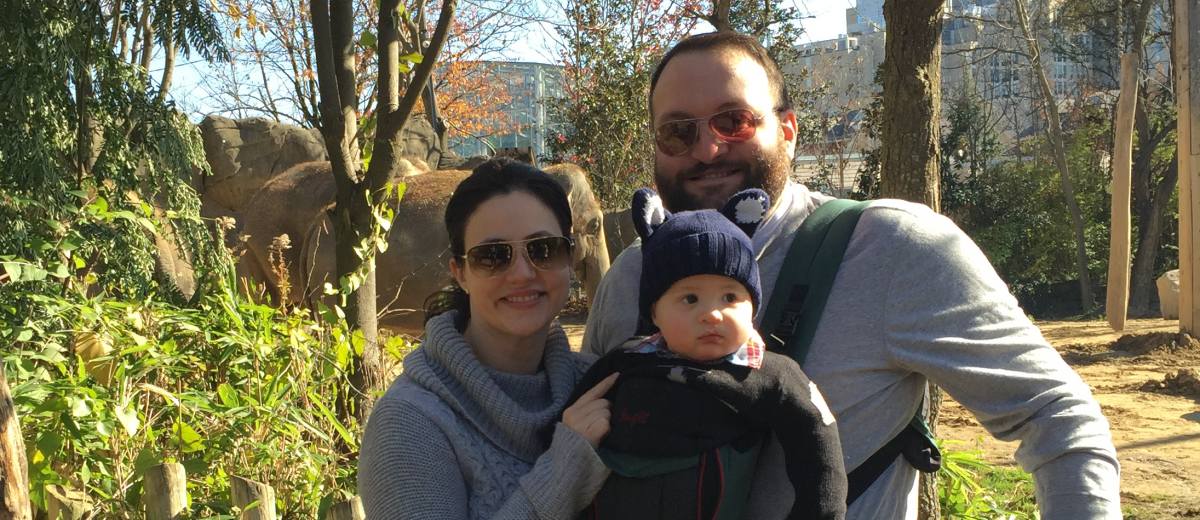Professional Accomplishments
Shannon Martin, MD, MS is an Assistant Professor of Medicine in the Section of Hospital Medicine. She is a 2011 graduate of the internal medicine residency program at the University of Chicago, and stayed on to complete a dual fellowship as a Hospitalist Scholar and in the Medical Education Research, Innovation, Teaching and Scholarship (MERITS) program while earning her master’s degree in Health Studies. Her clinical interests are in general internal medicine, in hospitalized patients, as well as perioperative consultative medicine. In July of this year, she assumed a new role as Associate Program Director for the internal medicine residency program, where her academic focus is on assessments in graduate medical education, clinical supervision in residency training, and improving trainee communication skills in consultative medicine.
Work Life Balance
My husband Michael and I welcomed our son, Harry, in May of 2015. He is now a happy, goofy 14-month old with a ton of energy and an amazing belly laugh that keeps us smiling every day. My husband is non-medical and thankfully has regular hours, which helps immensely in organizing our busy schedules. We share a nanny with a nearby family that has allowed us to have the flexibility of having a nanny as well as the wonderful ability for Harry to socialize with his little buddy. At home, we keep things running (mostly) smoothly by developing a fairly clear division of labor based on our strengths. Michael is the chef of the family, so he takes care of all the food prep and cooking, while I do bath time, books and bedtime with Harry. Since we both fail miserably at housekeeping, we outsource that as much as possible.
Advice to Women Faculty and Trainees
- Plan ahead for rough patches
It is very predictable that when I go on service, much of my time and energy is dedicated toward my patients and my team. As a result, lots of other things tend to fall by the wayside – academic deadlines, writing, and housework. I try to proactively arrange my schedule to minimize extraneous meetings or busy work that is not time sensitive to keep my focus on my patients and my residents and students. And on the home front, we’ve found that when we take the extra effort to organize the house, stock the fridge and do the laundry before a busy block starts, it makes all the difference and helps us to feel semi-relaxed after work rather than chronically behind. - Utilize FaceTime PRN
I will never complain about having a baby who is an excellent sleeper (we are so lucky!), but it was on Harry’s terms – he established his bedtime at the early hour of 6pm during his first year! As a busy junior faculty member with occasional late meetings or shifts, I had to come to terms with the fact that there may be times where I barely see him. If I am still at the hospital or at another professional obligation, I try to duck out to take a minute and do FaceTime before he goes to sleep. Though certainly not a substitute for being home, it means the world to me to be able to see his little face every day, even if just for a few minutes. - Cut yourself some slack
We are all accustomed to being perpetual overachievers, but the first year of life with a new baby is just as rough as everyone says. I naively thought that after returning to work that my academic productivity would immediately resume to pre-baby levels. It took me quite some time to figure out how to adjust my expectations for realistically completing the items on my to-do list given the new demands on my time. Once I was a little more patient with myself, it felt a lot better to have a more doable and smaller list rather than have so many chronically unchecked boxes. - Remember the privilege of being a mother and being a doctor
On tough days where it seems like I can barely do either, I try to remember how lucky I am to have both of these roles. Though I may not always succeed, I try to be the best that I can in each role when I am present in that moment, even when it’s at odds with the other one. When taking 30 extra minutes to listen to a frustrated patient in the hospital or have an additional session with a struggling trainee means I might miss seeing my son that night, it’s not always easy to choose to do that, but it’s the right thing to do as a physician in that moment. There are so many people in the world that ache to be either one or both of these things, and I am tremendously grateful that I get to be both a physician and a mother.

